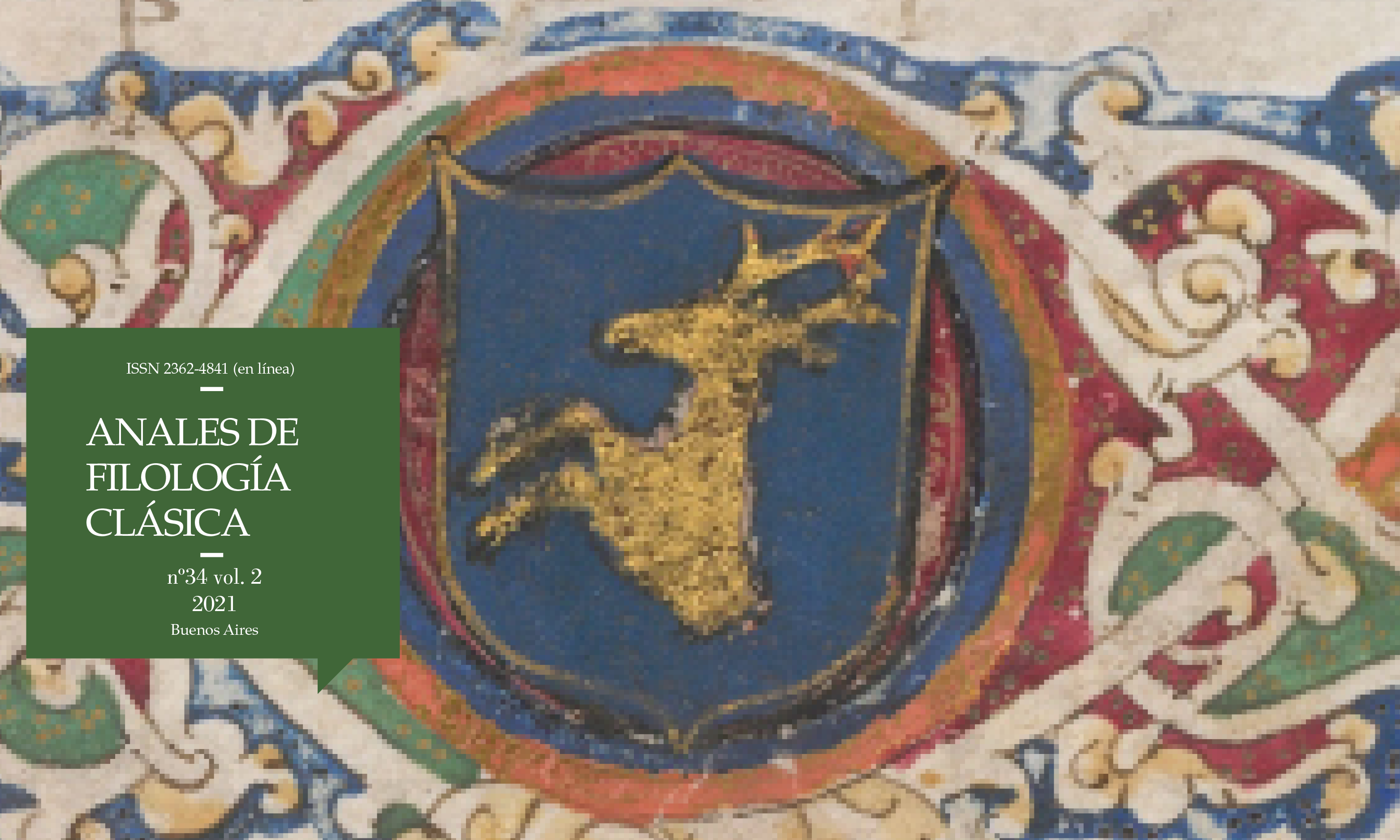Sexual impotence and genre experimentation in Ovid’s Amores 3.7
Keywords:
Ovid, Amores, metapoetic, sexual impotence, genre
Abstract
Ovid’s Elegy 3.7 from Amores the enunciator complains given that, suffering from sexual impotence, he was unable to unite with the young woman . Beyond these vicissitudes, we understand this episode as a metapoetic which presents the transient abandonment of the elegiac practice and foreshadows the approach to other poetic genres. In the elegiac code, where an objective is pursued but not attained (as, if it were, it would put an end to the amatory and writing practice), the desire for the puella’s body is comparable to the desire for the amatory and poetic practice. We consider this elegy not only shows an implied announcement of the abandonment of this type of poetry, but also a strengthening of the enunciator’s poetic streak and, thus, it foreshadows the development of other genres, which will include a subjacent amorous layer, as is substantiated by the rest of Ovid’s preserved works.Downloads
Download data is not yet available.
Published
2022-03-25
How to Cite
Daujotas, G. (2022). Sexual impotence and genre experimentation in Ovid’s Amores 3.7. Anales De Filología Clásica, 2(34), 41-54. https://doi.org/10.34096/afc.i34.11251
Issue
Section
Artículos
Los autores/as que publiquen en esta revista aceptan las siguientes condiciones:
- Los autores/as conservan los derechos de autor y ceden a la revista el derecho de la primera publicación, con el trabajo registrado con la licencia de Atribución-CompartirIgual 4.0 Internacional (CC-BY-SA 4.0) de Creative Commons, que permite el uso comercial de la obra y de las posibles obras derivadas, la distribución de las cuales se debe hacer con una licencia igual a la que regula la obra original.
- Los autores/as pueden realizar otros acuerdos contractuales independientes y adicionales para la distribución no exclusiva de la versión del artículo publicado en esta revista (p. ej., incluirlo en un repositorio institucional o publicarlo en un libro) siempre que indiquen claramente que el trabajo se publicó por primera vez en esta revista.
- Se permite y recomienda a los autores/as a publicar su trabajo en Internet (por ejemplo en páginas institucionales o personales) antes y durante el proceso de revisión y publicación, ya que puede conducir a intercambios productivos y a una mayor y más rápida difusión del trabajo publicado (vea The Effect of Open Access).
En ningún momento se cobrará monto alguno al autor por la publicación en esta revista.







